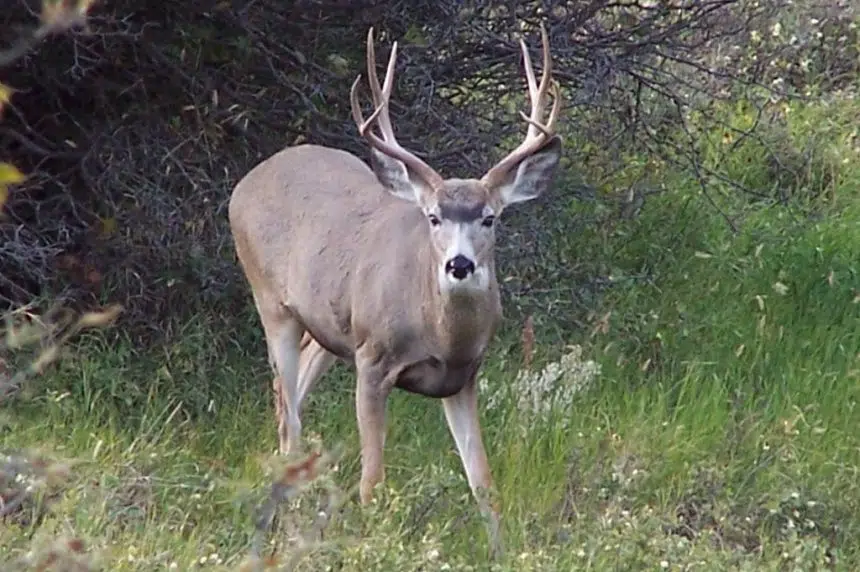In many parts of Saskatchewan, deer and elk are more than just pretty wildlife to take pictures of by the side of the road.
They’re destroying livestock food resources and crops.
The issue was brought up at the annual Saskatchewan Association of Rural Municipalities (SARM) convention in Saskatoon last week, and several farmers wanted to know what the province planned to do about it.
RM of Val Marie Reeve Larry Grant addressed both Premier Scott Moe and Environment Minister Dana Skoropad during the “Bear Pit” question-and-answer period.
He told both of them the western side of the province had been in drought for a long time and growing feed was impossible for many farmers.
“One thing that has grown is the deer and elk population. They’re decimating feed stacks. In my area, hay — if you can get it — is $200 a bale, delivered. The deer are moving in and taking their share first and what’s left they urinate on and defecate on, and destroy it,” he said.
Grant said action was needed immediately to control the deer and elk populations.
That sentiment was echoed by RM of Insinger Coun. Dwayne Kitzan. The RM is northwest of Yorkton.
“This is a big problem and it’s growing,” he said. “It’s not only the feed and the damage that they do, but it’s … the wolves that are moving in, the coyotes, the ravens and the magpies, and they’re doing a lot of damage also.”
SARM president Ray Orb said 2023 was a “worst-case scenario” year, not just limited to the wintertime.
“We had an early snow. We had a lot of ice with the snow,” he said. “The wildlife are really in trouble, so we need to figure out something.”
Orb explained that not only had farmers met with provincial representatives, but resolutions had also been passed by SARM delegates, calling for depredation tags to be issued, something that would help in the short term.
“In the long term, I think we have to have a better management plan for wildlife. It is also increasing limits … because they’re on the draw system. They need to have open season for some places like a regular season so that they’re better controlled,” added Orb.
In the past, Orb mentioned the province had set up feeding stations, especially for elk, to get them away from farmers’ fields and yards.
While Moe and Skoropad didn’t mention that, they did say that depredation tags could be issued. Those are permits that allow farmers to shoot certain wildlife on their property to protect their crops and livestock.
“I definitely hear what your concern is,” said Skoropad. “We’re going to be looking at offering more tags to address the population.”
“I’m going to ask … our minister of environment to engage with (Orb) and his team on the potential of some depredation tags being made available to SARM,” said Moe.
Grant said if something wasn’t done immediately, there could be disastrous consequences.
“It’s in dire straits. The livestock industry has dealt with drought and feed shortages, and we’re not going to have a livestock industry if something isn’t done,” said Grant.
A request for an interview has been sent to the Ministry of Environment for comment on issuing special hunting tags or other potential solutions to farmers’ concerns.











